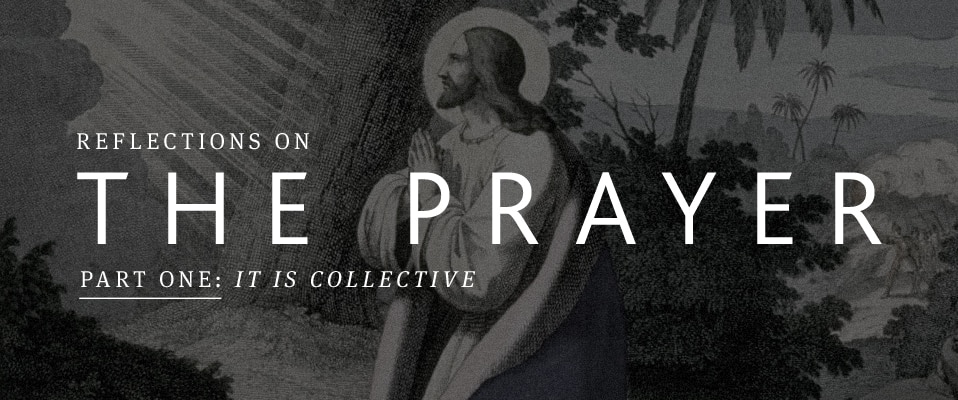Happiness is in high demand, and this demand is recession-proof. The ancient philosopher Aristotle righty noted that no human seeks to be unhappy. Jesus too, has a thing or two to say about happiness. In Matthew 5, he gives a list of personal qualities that we call the beatitudes. “Blessed are those who mourn, for they shall be comforted” is a beatitude that comes to mind. Though not immediately self-evident, the beatitudes might be compared to happiness tips. They unveil a path to true happiness or blessedness. Daunting though they can be, people like the beatitudes because they desire to be happy or blessed. Yet, as we all sadly know from experience, the human search for happiness easily becomes a never-ending quest for an ever-elusive object.
About eight years ago, I had the good fortune to study at Augustine College, where my life and destiny were forever changed. During this time, I was pressed to think a bit deeper about human happiness. A professor of mine gave a very meaningful address called the Four Levels of Happiness. His musings were nothing novel—they’re indebted to ancient Christian thinkers. The concepts he introduced have stuck with me ever since, and I hope they’ll stick with you, too.
Happiness Level 1: Animal Happiness
Happiness Level 1 can be called animal happiness. Like most of earth’s animals, all humans have appetites. You’re hungry and tired. You discover a delicious, warm meal on the table. You eat and there is pleasure. This experience can be repeated a few hours later when we start getting “hangry” again. This is Happiness 1. We experience it when our appetites are satisfied, and it has an external and transient quality.
Happiness 1, however, can be abused. For example, when we eat not to satisfy our appetite, but rather to cope with anxiety, we veer into the realm of Unhappiness 1. Overeating often leads to obesity and poor health, which don’t give much happiness. Or, when we treat sex only as a means for satisfying an appetite and divorce it from love and commitment, we also experience Unhappiness 1.
There seems to be something in us—or recurrent in human experience—that is constantly at risk of misusing Happiness 1. This compels us to seek something more.
Happiness Level 2: Achievement Through Personal Discipline
Happiness 2 involves the use of our minds so as to govern our will and control our passions. A dense definition, I know! Put another way: personal discipline—whether in the form of educational betterment, physical training, or skill development—is a key ingredient of Happiness 2. We experience this form of happiness in our achievements and successes and areas of expertise. It feels nice to be good at something. We find happiness in excelling at things. We enjoy the “eureka” experience of cracking a tough problem, of mastering some technique, or of fulfilling a personal goal.
Alas, Happiness 2 can also be distorted, because it inevitably involves comparison and competition. Sometimes being good at something means being better than somebody else. This can easily get out of hand. Consider the graduate student who is always slaving to outdo her classmates. In this mode of existence, the joy that she should find in her academic attainments evaporates in the face of unchecked competition. Unhappiness 2 has set in. And so we must look to a better type of happiness.
Happiness Level 3: Celebrating and Appreciating Others
Happiness Level 3 is for the person who shifts from a “self-oriented” mode of life to an “others-oriented” one. It emerges when we begin to recognize that some things and people are good “in and of themselves”. This level is devoid of competitiveness. It does not seek immediate and material reward, nor does it demand reciprocity. As a result, Happiness 3 sees and delights in the gifts and successes of others. Here, one finds pleasure in serving others. A mother’s love and care for her children is an ideal picture of Happiness 3 in action.
Wonderful as it is, Happiness 3 is also subject to limits. A lack of inner confidence, maturity, and poise rob many people of the beautiful experience that is Happiness 3. When I feel angered that others don’t reciprocate my service and care, for instance, I am prone to slide into Unhappiness 3. This can be a very bitter and resentful place. More importantly, however, because Happiness 3 is tied to the enjoyment, success, and love of others, it can be terminated. People die. And with their parting, Happiness 3 will fade. This is the truth that Proverbs 14:13 conveys: “Sorrow may hide behind laughter and happiness may end in sorrow.” And so we must look for an even greater form of happiness.
Happiness Level 4: Knowing God
The highest mode of happiness is something that Christians are called to witness to: knowing God. This alone can be called full or perfect happiness. It does not negate the real value of the other three levels of happiness, but it does surpass them. Happiness 4 is not the contrived glee or pretend joy that we sometimes encounter in churches on Sundays. It’s much more than this. And it’s something that God wants you to experience because, in a certain sense, God desires for you to be happy.
Happiness Level 4 is best depicted in lives and stories. To try to define it abstractly only lessens its glory. When I think of Happiness 4, my thoughts often turn to St. Paul. In some of the most moving and inspiring words of the New Testament, he talks about a profound sense of inner contentment and satisfaction that comes from knowing Christ. His words from Philippians 4 are worth quoting:
“For I have learned in whatever situation I am in to be content. I know how to be brought low, and I know how to abound…I can do all things through him who strengthens me.”
Because Paul is deeply familiar with Christ, he tastes Happiness 4. This is the highest happiness, and it is what God wants for you. It can never be shaken. It never expires. The person who knows God, who loves and cherishes Christ, has a source of happiness that is more permanent and fulfilling than anything else. If you have never heard this, I hope that you’ll consider the invitation that stands before you. And if you’ve experienced but forgotten this, I pray that you’ll renew your pursuit of God, for his desire for your ultimate happiness does not cease.




